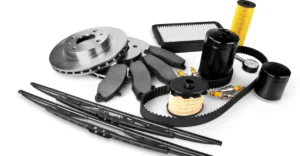Customizing your car is an exciting way to express your personality or improve its performance. But in many countries, including the UAE*, personalizing your vehicle isn’t as simple as picking a spoiler off the shelf or slapping on a matte wrap. Strict car modification laws are in place to ensure that every change made to a vehicle maintains public safety, complies with environmental standards, and preserves roadworthiness.
In this guide, we break down everything you need to know about legal and illegal car modifications, how to get approvals, the penalties for non-compliance, and how to safely personalize your car.
Why Are Car Modification Laws Important?
Car modification laws are designed to:
- Maintain public safety by ensuring modifications do not affect braking, visibility, or stability
- Limit environmental damage from excessive noise and emissions
- Reduce the risk of accidents due to faulty or unsafe alterations
- Ensure uniformity in registration, insurance, and enforcement
While the laws might seem restrictive, they’re meant to protect both drivers and other road users. However, that doesn’t mean you can’t modify your car you just need to do it the right way.
What Types of Modifications Are Allowed?
Aesthetic Changes (With Conditions)
- Car wrapping is legal if the color change is reported to and approved by the relevant authorities. The wrap must not obscure license plates or windows.
- Decals and stickers are permitted as long as they are not offensive, do not obstruct the driver’s view, and are within approved placement zones.
- Lighting upgrades like LED enhancements or fog lights are generally accepted, but flashing lights, strobes, or underbody neon lights are often prohibited.
Interior Upgrades
You can install new seats, a better infotainment system, or ambient lighting, as long as these do not interfere with airbags or the vehicle’s electrical safety.
Suspension & Wheel Changes
- You can lower your suspension using coilovers or air systems, but there are limits on how low a vehicle can go.
- Wheel and tire upgrades are fine, provided they don’t extend beyond the bodywork or interfere with the suspension.
Performance Enhancements (With Approval)
- Engine remapping (ECU tuning) is allowed if it stays within emission standards.
- Brake upgrades are often encouraged for high-performance builds but must be professionally installed.
- Exhaust upgrades are okay as long as sound levels remain below 95 decibels. Muffler deletion, however, is typically not permitted.
What Is Not Allowed?
Some modifications are strictly prohibited unless approved by the RTA or similar governing body:
- Excessive window tinting (front windows must allow at least 50% light transmission)
- Neon or flashing lights
- Loud exhaust systems above 95 dB
- Engine swaps without inspection and approval
- Significant suspension lowering that compromises ground clearance
- Tampering with vehicle identification numbers (VIN) or license plates
Violating these rules can lead to fines, car impoundment, and insurance voiding.
How to Get Car Modifications Approved
To stay compliant:
- Visit an Authorized Workshop: Choose a garage certified by the Emirates Authority for Standardisation and Metrology (ESMA).
- Submit Your Modification Plan: Share the changes you plan to make.
- Undergo Vehicle Evaluation: The car will be inspected for safety, emissions, and noise levels.
- Receive an Approval Certificate: If approved, you can update your vehicle registration accordingly.
What Happens If You Don’t Get Approval?
Unauthorized modifications can result in:
- Fines ranging from AED 400 to AED 50,000
- Accumulation of black points on your driving record
- Confiscation of your vehicle for up to 30 days
- Suspension or rejection of vehicle registration
- Insurance companies refusing to cover the modified vehicle
Tips for Legal Modding
- Always declare modifications to your insurer
- Keep receipts and certificates for any aftermarket work
- Use certified parts and experienced garages
- Stay updated on changes in modification laws by attending automotive events or checking official authority websites
Where to Get Legal Car Mods Done
In the UAE*, you should visit RTA-approved garages such as:
- Tasjeel or Shamil centers for inspections
- Performance Motorsports for engine tuning
- Car Wrap Dubai for certified color changes
- Dubai Auto Garage for suspension and tire upgrades
The Future of Car Customization
The rise of electric vehicles and AI-based car systems is prompting new laws around EV battery upgrades, smart infotainment integrations, and autonomous safety systems. As vehicles become more technologically complex, expect customization rules to evolve accordingly. To avoid fines, always ask yourself: Is this mod legal? If unsure, contact the RTA or an approved garage before going ahead
Final Thoughts
Customizing your car can be rewarding, but only if you do it by the book. Illegal mods not only risk fines and penalties but can also put you and others at risk. Stay informed, choose certified installers, and always get the green light before hitting the road with your upgraded ride
Need a modification or inspection that meets UAE road laws?
At MotorHub, we partner with certified garages across Dubai, Abu Dhabi, and Sharjah to help you modify your car legally and safely. Book a consultation or inspection with us and drive your dream car without breaking the law.
*This blog focuses on UAE car modification laws and is written for a global audience interested in compliant vehicle customization. All regulations mentioned are specific to the UAE and subject to updates by the relevant transport authorities.



